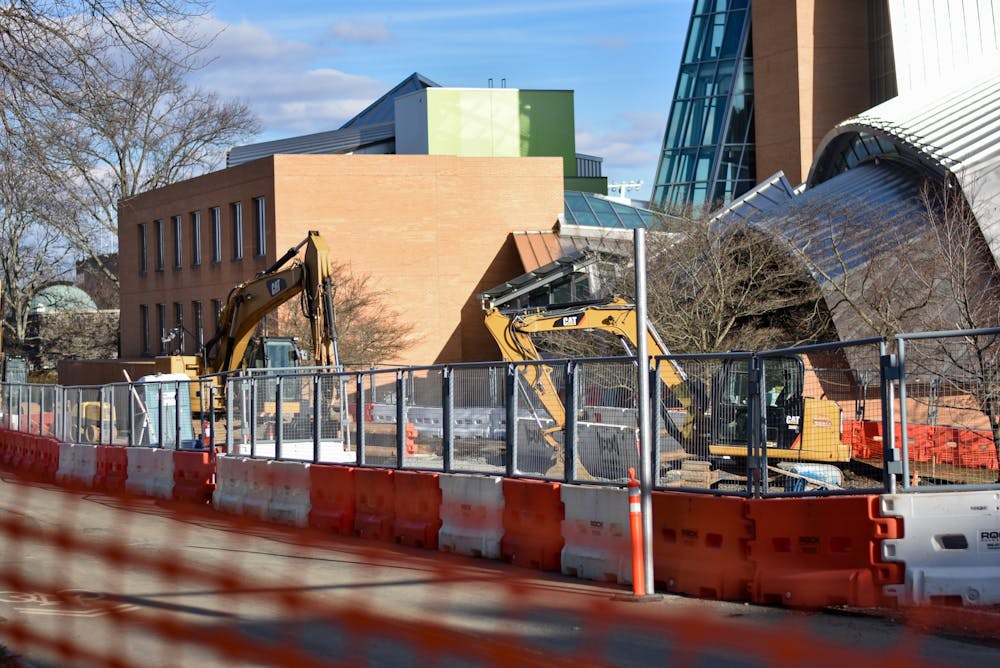The following is a guest contribution and reflects the author’s views alone. For information on how to submit an article to the Opinion Section, click here.
As the USG-recognized opposition group leader to the anti-Caterpillar referendum, I was told that if both the sponsor and I agreed to debate, USG would organize an event with a University administrator as the moderator. Before I could even reply, I was informed that the referendum’s sponsor, who is also the leader of the Princeton Committee on Palestine (PCP), had already declined the invitation.
Their refusal to debate the issues with the students opposing the referendum clearly demonstrates they know their campaign could not withstand the rigorous scrutiny of the student body. Instead, the referendum sponsors are trying to define their efforts in isolation, far removed from the public conversation, so they can paint their illiberal and harmful goals as a progressive stance.
There is already a pattern of the referendum sponsor masking their true intentions around this referendum, which would urge the University to stop using Caterpillar equipment for campus construction projects. The organizers strategically chose not to mention the global anti-Israel Boycott, Divestment and Sanctions (BDS) movement in the referendum language that students will be voting on — even though BDS is part of the official explanation for the referendum.
Why did the sponsors omit the connection to BDS in the referendum language? And why won’t they debate supporters of Israel, the only pluralistic democracy in the Middle East? Because they understand that they will be revealed as backers of a global movement that hurts both Israelis and Palestinians without bringing anyone closer to a just peace.
If this referendum were truly about supporting Palestinians and ensuring justice and peace, it would focus on tangible solutions to help the Palestinian people rather than virtue signaling through BDS-affiliated proposals. Consider that the Palestinian Authority itself uses Caterpillar equipment — the very equipment the referendum claims contributes to Palestinians’ suffering — for their own projects and that Forbes has reported that the BDS movement harms the Palestinian economy. A supposed “BDS victory” that led to the closing of a SodaStream factory in the West Bank had the tangible impact of over 500 Palestinians losing their jobs.
BDS targets Israel but harms the Palestinian people, their economy, and their future. The Palestinian people deserve better, Jewish and Israeli students deserve better, and our campus deserves better. The resolution sponsors surely know this would all come up in a public debate.
A public debate would also remind Princeton students of what happened during a similar BDS referendum in 2015. We saw a spike in antisemitic incidents that included “swastikas, attacks on social media and in [The Daily Princetonian], and hacks to personal and organizational email accounts,” according to Rabbi Julie Roth of the Center for Jewish Life (CJL), as first reported by The Princeton Tory.

The referendum’s sponsors show bad faith by failing to provide any kind of public discussion before the student body.
But we know why they are doing this: every time BDS is exposed to the light of truth, its ugly nature is revealed, and it withers on its own accord. This is why BDS proponents are attempting to win by night. Princeton deserves better. Vote no on referendum 3.
Reid Zlotky is a junior concentrating in Philosophy from Dallas, Texas. He formerly served as secretary of Tigers for Israel. He can be reached at rzlotky@princeton.edu.









